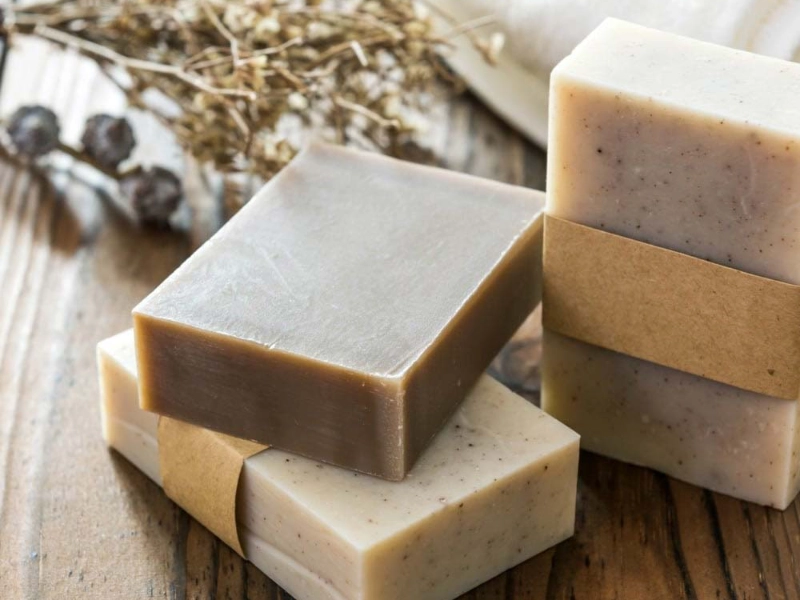Unlock Better Sleep: The Soap Secret Nobody's Talking About
Advertisement
5. Real Stories: Testimonials from Soap Sleep Converts

Advertisement
There are amazing personal tales from people who have tried this unusual approach abound in the world of soap sleeping. These anecdotes offer insightful analysis of the several experiences of people who have included soap into their nightly rituals. Although personal experiences cannot be regarded as scientific proof, they provide a convincing window into the possible advantages of this peculiar activity.
For years Sarah, a 45-year-old office manager, has been suffering with restless leg syndrome. "I was dubious when my friend advised slinking soap into my bed," she says. "But I was desperate for relief, so I decided to give it a try." Sarah was surprised to find her symptoms much improved in a few nights. "It wasn't a complete cure, but the uncomfortable sensations in my legs were much less intense. I was finally able to get a good night's sleep without regularly moving my legs."
Retired 62-year-old John sought the soap method to help with his persistent leg cramps. "I used to awaken several times a night with terrible cramps," he says. John felt the soap approach sounded ridiculous when he heard about it online, but he figured he had nothing to lose. He put a lavender-scented bar under his fitted sheet and was astounded by the results. "Within a week, the frequency of my leg cramps had dropped drastically. I'm not complaining; I'm not sure why it works."
The soap method relieved Maria, a 38-year-old teacher, of more than just bodily ailments. "I have always been a light sleeper and found difficulty falling asleep from anxiety," she says. "When I started putting soap in my bed, I noticed that I felt more relaxed at bedtime. It's like the ritual of placing the soap under my pillow signals to my brain that it's time to wind down." Maria says the combination of the soothing scent and the psychological impact of the routine has helped to improve her sleep quality.
Originally discounting the soap method, Tom, a 55-year-old truck driver "My wife insisted we try it, and I thought it was just another pointless trend," he says. But Tom discovered an unanticipated advantage after a few weeks of sleeping with soap. "I used to snore pretty badly, according to my wife. But she says it's gotten much better since we started using the soap. I feel more rested in the mornings also so maybe there's something to it after all."
Working night shifts, 41-year-old nurse Lisa discovered the soap method helped her fit her erratic sleep pattern. "Sleeping during the day always presented a difficulty for me," she says. "But since I started putting a bar of soap under my sheet, I've found it easier to fall asleep and stay asleep, even with the sunlight outside. Lisa believes the soap gives her always shifting sleep environment consistency."
Some, like 70-year-old Robert, found that sleeping with soap had advantages beyond only better sleep. "I have years of arthritis in my hands, and it often flares up at night," he notes. "I was surprised to find that the pain seemed less intense in the mornings. It's not a cure, but every bit of relief helps." Sleep with soap near your hands.
During her pregnancy, 29-year-old graphic designer Emily came into an unusual application for the soap trick. "The last trimester was tough, with lots of discomfort and trouble sleeping," she notes. "A friend suggested I try the soap method, and I was amazed at how it seemed to help with leg cramps related to pregnancy and general discomfort. It made those last few weeks much more bearable."
Not everyone, though, achieves notable success. After trying the soap method for a month, 50-year-old accountant James observed just minor changes. "I can't say it transformed my sleep," he acknowledges. "But I felt like I was waking up a bit more refreshed. And the daily ritual of laying the soap in bed each night has some consoling effect."
These first-hand accounts draw attention to the different experiences people who have tried sleeping with soap encounter. While some say their sleep quality has improved significantly and that particular symptoms have been relieved, others find more subdued changes. The variety of these experiences emphasises the subjective character of sleep and the possible influence of personal elements on the efficacy of unusual sleep aids.
Although these tales are interesting, they do not provide any scientific data. Changes in sleep hygiene, the placebo effect, and other elements could all help to explain the apparent advantages. The profusion of favourable experiences, however, points to some people who have found great changes in their sleep quality and general well-being by only adding soap to their bed.
Like any sleep aid or cure, what benefits one person might not help another. These tales remind us of the complicated and personal nature of sleep as well as the possible worth of having an open mind regarding unusual methods of enhancing sleep quality.
Advertisement
You May Like

